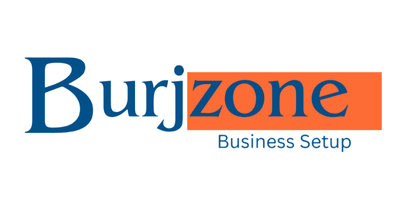Our Blog
Home / Blog
Business Setup Timeline in UAE: What to Expect from Application to Launch
Starting a business in the UAE is an exciting opportunity, but success begins with preparation—especially understanding the timeline of the setup process. Whether you’re forming a company in Dubai Mainland, launching in a Sharjah Free Zone, or expanding into Abu Dhabi, knowing what to expect from application to launch helps you avoid delays and costly mistakes.
This guide breaks down the business setup journey into clear, step-by-step stages with realistic timeframes based on current 2025 regulations and procedures.
1. Choosing the Jurisdiction and Legal Structure (1–3 Days)
The first step is deciding where and how to register your company:
-
Mainland (Dubai DED, Abu Dhabi DED)
-
Free Zones (e.g., DMCC, Sharjah Media City, RAKEZ)
-
Offshore (RAK ICC, JAFZA Offshore)
You’ll also select your legal structure—LLC, sole proprietorship, civil company, FZE, branch office, etc. This decision affects taxes, ownership, and business activities.
Timeframe: 1–3 working days if you already have a business plan and chosen activity.
2. Trade Name Reservation (1–2 Days)
You must reserve a unique trade name with the respective authority. Make sure it doesn’t violate UAE’s naming conventions or use restricted words.
Timeframe: Usually approved within 24–48 hours.
3. Initial Approval from Licensing Authority (2–4 Days)
You’ll need preliminary approval from the licensing body (Dubai DED, Free Zone authority, etc.), confirming that your business type is acceptable.
This step may require:
-
Passport copies of shareholders
-
NOC from current sponsor (if applicable)
-
Proof of residence (UAE or abroad)
Timeframe: 2–4 working days depending on the activity and jurisdiction.
4. Memorandum of Association (MOA) & Local Agreements (2–3 Days)
For Mainland companies, you’ll need to draft and notarize the MOA. If you’re forming an LLC, the document must detail ownership splits and responsibilities.
In Free Zones, this step is typically internal and faster.
Timeframe: 2–3 days for notarization and approvals.
5. Office Space & Ejari Registration (1–3 Days)
A physical office address is mandatory for license issuance. In the Mainland, you must register the office space with Ejari (Dubai’s tenancy contract system). Free Zones usually offer Flexi-desks or shared workspaces with built-in approvals.
Timeframe: 1–3 working days if documents are ready.
6. Final License Issuance (2–5 Days)
Once all documentation is submitted and fees paid, the final trade license is issued. For Free Zones, this often includes:
-
Business license
-
Certificate of Incorporation
-
Lease Agreement
-
Share Certificate
-
MOA (if applicable)
Timeframe: 2–5 working days depending on the authority and activity.
7. Establishment Card & Labor File (3–5 Days)
If you plan to hire employees, you’ll need:
-
Immigration Establishment Card
-
MOHRE (Labour) account
-
Company e-channel registration
Timeframe: 3–5 days post-license issuance.
8. Corporate Bank Account Opening (1–3 Weeks)
UAE banks require:
-
Trade license
-
MOA
-
Shareholder documents
-
Office lease
-
Business plan (for certain industries)
Compliance checks have become stricter, and approvals vary based on nationality, industry, and bank.
Timeframe: 1–3 weeks depending on the bank.
9. Optional: VAT & Corporate Tax Registration (3–7 Days)
If your business meets the VAT threshold (AED 375,000) or is liable for corporate tax, registration is mandatory. You’ll need to apply via the Federal Tax Authority (FTA) portal.
Timeframe: 3–7 working days if documentation is complete.
Total Estimated Setup Time
| Stage | Mainland Company | Free Zone Company |
|---|---|---|
| Preparation to License | 7–14 working days | 5–10 working days |
| Bank Account Opening | 1–3 weeks | 1–3 weeks |
| Optional Tax Setup | 3–7 working days | 3–7 working days |
So, in total, you should budget 3 to 4 weeks for a complete and functional business launch in the UAE—sometimes faster in select Free Zones.
Understanding the business setup timeline in the UAE helps you stay on schedule and within budget. Free Zones are often quicker and more streamlined, while Mainland companies offer greater market access but require additional steps like Ejari and local approvals.
By working with an experienced business formation consultant in Dubai or Abu Dhabi, you can avoid pitfalls, ensure compliance, and accelerate your launch.
#BusinessSetupUAE #DubaiBusinessTimeline #FreeZoneSetup #MainlandLicenseDubai #UAECompanyFormation
#SharjahBusinessSetup #AbuDhabiStartups #TradeLicenseUAE #UAEEntrepreneurs #CompanyLaunchDubai
